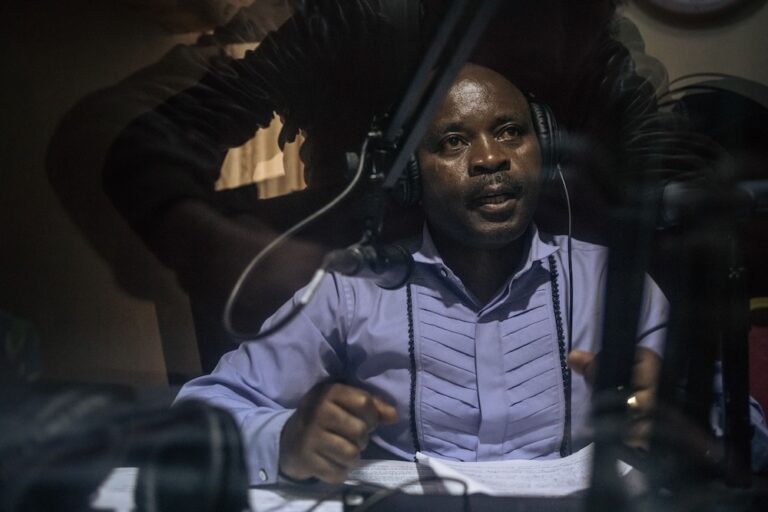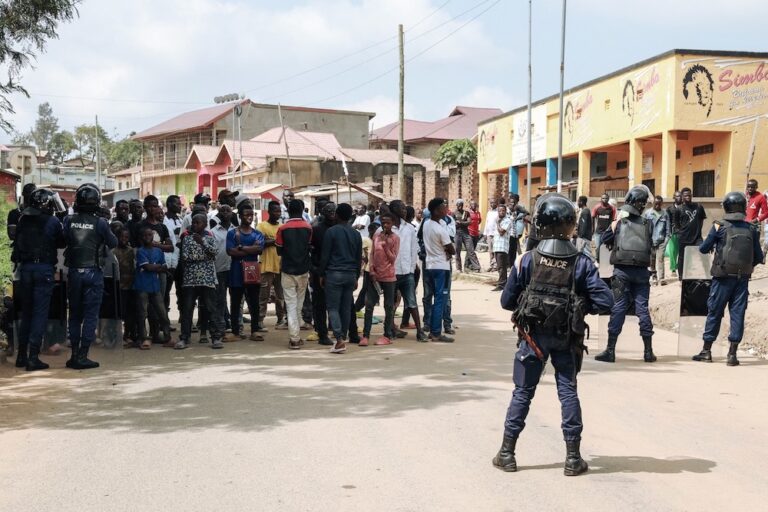(JED/IFEX) – The military court of the Kinshasa/Matete garrison in the Democratic Republic of Congo pronounced on 13 April 2007 its verdict in the murder trial of journalist Franck Ngyke and his wife Hélène Mpaka. Joël Munganda, the main defendant, and Papy Munongo were sentenced to death. The third defendant, Didier Awatimbine, was sentenced to […]
(JED/IFEX) – The military court of the Kinshasa/Matete garrison in the Democratic Republic of Congo pronounced on 13 April 2007 its verdict in the murder trial of journalist Franck Ngyke and his wife Hélène Mpaka. Joël Munganda, the main defendant, and Papy Munongo were sentenced to death. The third defendant, Didier Awatimbine, was sentenced to life in prison. All three were found guilty of murder, attempted murder, extortion, and violation of prison regulations.
The court also condemned Serges Kabungu Obez, in absentia, to five years’ imprisonment for having purchased a telephone which had belonged to the journalist, and acquitted Paulin Kusungila, uncle to Joël Munganda, who was tried for being associated with the accused.
After the verdict was read, the presiding judge announced that the convicted persons and the defence each had five days to appeal the judgment if they chose to do so.
JED expresses its disappointment with this “incomplete trial”, which did not allow the whole truth to come out around the motive of this double murder of the journalist and his wife. JED regrets that the court privileged the evidence of a crime against property, despite numerous witnesses indicating that the murder of Ngyke was a contract killing.
Franck Ngyke, editor-in-chief of the political section of “La Reference Plus”, a daily newspaper published in Kinshasa, and his wife Hélène Mpaka were murdered on the night of 2-3 November 2005 at their home in Mombele.
In their defence, lawyers of the civil party deplored the looseness with which the deliberation of the case was conducted by police and the military investigation office, as well as the court’s refusal to listen to their numerous requests to have certain individuals called to testify in a public hearing. “The trial ends without knowing the real motives of the crime and so there are still a number of dark areas”, they said.


